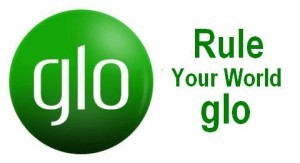Technology
Glo market share trails MTN

JUSTUS ADEJUMOH
The determination of the country’s Second National Operator (SNO) telecom giant, Globacom, to pull weight in the industry market, as it has continued to attract more subscribers on its network.
Now the second biggest network in subscription market share after MTN, Globacom is now poised to maintain a steady subscriber market drive which is expected to drastically reduce the wide dominant gap created by MTN over the years.
In the National Bureau of Statistics (NBS) report quoting the Nigerian Communications Commission’s 2015 first quarter report, a total of 1.63 million telephone users, the highest number of new subscribers in the country joined Globacom from May, 2014 to May, 2015 to bring its total subscribers figure to 30.03 million.
The growth in subscribers was mainly driven by Globacom, which recorded an average rate of 1.45 per cent over the period, closely followed by Etisalat with 1.37 per cent and Airtel with 1.29 per cent, while MTN recorded the lowest average monthly growth in subscribers at 0.44%.
The telecommunications operator which will mark twelve years of operation in Nigeria next month has been described as a network with unlimited potentials that can push it to industry market top leader in the area of subscriber base among others within a few years from now.
However some industry analysts are pessimistic of the future of the network because of the increasing market competition.
In their view, the dominance of the market may be evasive if concerted efforts are not made by the telecom operator, especially in the areas of service quality, network coverage and innovative offers.
Recently, Globacom was reportedly sealing a USD600 million takeover deal for cash-strapped Comium Cote d’Ivoire.
If the bid gets through, Glo is expected to invest about $1 billion to modernise the Ivorian operator’s network infrastructure.
According to the National Association of Telecommunications Subscribers (NATCOMS) President, Deolu Ogunbanjo, while speaking with Hallmark, “Globacom has every chance to be the leader of the telecom industry. As an indigenous network and second national carrier in the country, it should have a significant edge over others. But the whether it is utilising these opportunities or not, is a question that should bother the network’s stakeholders.
Beyond the innovative offers being introduced by the service provider, it has also continued to boost its operations with heavy investments on infrastructure, aggressive network expansion drive and innovative marketing.
The total value of the investment by Glo the same year was $1.25 billion.
The telecom giant last year announced near-completion of its comprehensive nationwide network upgrade and expansion project.
When contacted on phone, a senior official of the company in its public relations unit, who preferred not to be named, said he would call back. But he never did as at the time of going to press.
Already, there are signs that the national carrier is counting the gains of the few steps it has taken to prove its mettle. The industry’s regulator, Nigerian Communications Commission’s (NCC) statistics early last year showed that Glo stepped up its game by recording a subscriber base of 27.327,646 in just four months between February and June 2014, translating to 21% share of the Nigerian telecoms market to place second behind MTN.
In the release, Airtel which briefly occupied the second position early this year took third place with 25,302,160 subscribers and 20% market share. Etisalat retains the fourth position with 19,390,285 subscribers which represents 15% share of the market.
Between end of February and June end, Glo added 2,836,996 new subscribers to its network, while Etisalat recorded 1,270,888 new customers. On the other hand, MTN lost 666,986 subscribers, while Airtel also lost 892,176 customers, the highest loss within the period.
From the record, it is clear that Glo is set for a continuous positive outlook in the years ahead.
As part of its consistent growth trend, Globacom in 2010 emerged the number two operator by subscriber number and grossed over 3.7 million lines more than rival Airtel Nigeria, in 2010 telephone subscriber information released by the industry regulator.
According to the figure by the regulator, Glo ended 2010 with 19,627,415 lines as against Airtel Nigeria’s 15,834,243 representing a difference of 3,793,172 lines between them.



